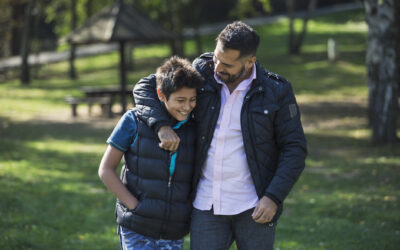We are writing to you to address this unusual time we all find ourselves in with the rise of Coronavirus in our world and community. As new information and realities of the spread of this virus grows, and while uncertainty for exactly what or how this will unfold persists, anxiety, fear and panic have also been swelling. We wanted to offer some words and suggestions that we hope can help you and your loved ones better navigate this period of not-knowing where or what will happen next, because we understand that as humans, coping with uncertainty can be quite a difficult challenge.
– First and foremost, we are all in this together. When we feel overcome by fear, anxiety or panic it is common to feel isolated and alone in these all-encompassing feelings. Similarly, as anxiety is contagious, your anxiety may mix with another’s leaving you both feeling either a heightened sense of anxiety or more on edge and irritable or argumentative when with others. Please remember to be compassionate with yourself and with those around you. Do not judge others for their reactions, try not to add to others anxiety and be mindful they are trying to cope with the situation just as you are. As you practice the following steps that will hopefully help you better manage your anxiety, please be kind and share what works and offer support. If you have a friend or loved one who is struggling, drop a line and check in on them and share these tips.
– Watch where your focus and attention are going. While it can be very hard not to over-focus on the news and information constantly being churned out by various media sources, and whether its redundant or new and informative, it’s crucial to limit your consumption of coronavirus-only media. While the drive is to learn as much as we can (which is an adaptive way aimed to calm our anxiety as it is harder when we “don’t know”), too much information or over-saturation is not ideal for our brain’s ability to process, code and store the information in a manageable, securing and calming way. Endless “streaming” of coronavirus media keeps the alarm center of the brain in a heightened state of alert which further triggers our nervous system and physiology to be “on-guard”. Give yourself periodic time-outs from the media so your body has time to reset and do other things such as…
– Divert your attention to calming images, activities, thoughts. While it can be a hard task to pull yourself away from seeking new information about the virus, it’s imperative to initiate a pause and break. No one can do this for you, you must do this for yourself or even enlist the support of loved ones to remind you to divert your attention. Watch a movie, read a good book, look at magazine, sketch, color, knit, do a puzzle, organize your closet, listen to music, make art, play with your kids, take a walk outside, go into nature, stare at nature. It can also be helpful to make a list of things you like to do or have been meaning to do and haven’t had time for, to pull from. This is not the same as saying “I must stop thinking about the pink elephant” because thinking about what you want to stop thinking about will only further your brain’s attachment to the “pink elephant” (which in this case is coronavirus). Instead, intentionally direct yourself towards engaging with something entirely different. For instance, “I’m going to work on a puzzle now” Direct the focus towards what you will be doing, not on what you are trying to get away from.
– Focus on calming your nervous system instead of getting away from your anxiety. Breathwork, focused meditation, guided imagery and physical exercise are all very useful and effective and free ways to calm your nervous system when it is engaged in “on-guard” mode. Slow deep inhales and slow long exhales are the quickest ways to calm the nervous system. A simple breathing exercise is to Inhale slowly and deeply on a count of 2, exhale long and slow on a count of 4. Guided meditation or guided imagery can be very useful and there are a plethora of videos you can access online. Physical exercise either rigorous like running or weight-lifting or calming movements like yoga and tai-chi, or even putting on music you like and start singing along and dancing to, all can help your body and mind cope with stress.
– Engage your inner coach and remember, YOU CAN HANDLE THIS – If your inner script is one of “This is so scary, what’s going to happen, I can’t handle this” chances are you will invariably have a harder time to cope. If you remind yourself what you can handle and that you can get through this and think about what is within your control such as exercising proper hygiene and stocking up on some extra supplies for instance or recall other times when you were stressed and anxious that you were able to get through and manage with can help.
– Practice good or better than good self-care – eating healthy, getting enough sleep, physical exercise, talking with loved ones, talking with your therapist, whatever are your methods for self-care are – use them!!! If having trouble sleeping, searching up ambient music to listen to or a “yoga-nidra” video to lie down and listen to can also be quite supportive and calming.
– Remember, This Too Shall Pass – This old adage is a good one as it is a good and constant reminder that nothing is permanent. While this is indeed a stressful time, it is temporary and will come to an end. And it’s important to remember that this will wind down and we will have what to learn from this experience and find ourselves on the other side of this at some point in time.
Yours in Good Health,
The BHAVA Therapy Group Team



